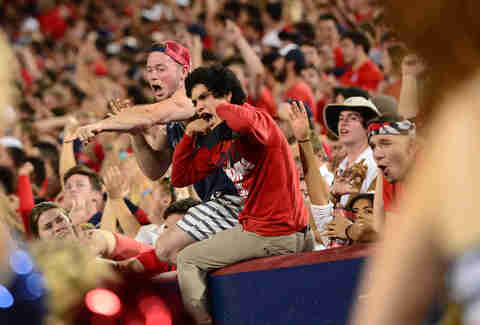Listen up! Roane County High School’s football coach’s message to his team applies to all of us.
He told his players following the death of senior Alex Miller, No. 80, after collapsing on the field Friday night, “… To work hard to honor him as we move forward, not only in the football season, but in their lives.”
Words often fail us in situations involving the unexpected deaths of the young. We often look to one of America’s great poets, who said he could sum up everything he’s learned about life in three words: “It goes on.”
That message and that of the coach Paul Burdette’s both impress upon us that we may honor the death of a young man with prayers and messages of support — even donning his team’s colors — today.
But we can do far more to honor him in ways that are also meaningful in our lives, including at football games and other athletic events.
One facet of behavior at athletic games that needs to change is how some adult fans and parents of athletes conduct themselves.
The behavior we cite is not that of the student bodies, where excess is to be expected, but where some of what passes for adult behavior should not be.
Call it abusive, bad or juvenile behavior it’s not fitting for adults to argue (and vocalize) that referees and umpires got the call wrong. Or to denigrate coaches’ decisions that are not successful or accuse them of playing politics with playing time for their sons and daughters.
And there’s this: When more than 2,000 high school athletic directors were asked in a recent national survey what they like least about their job, 62.3% said it was “dealing with aggressive parents and adult fans.”
There’s the men and women who officiate games, too, who agree. Almost 80% of officials quit after the first two years on the job, and unruly parents are cited as why.
No one here opposes boos for a perceived bad call or decision, but taunting, disrespect or being verbally abusive of coaches and officials is wrong.
Admittedly, it’s hard to always keep your emotions in check about sports, which for many is a passion if not part of their identity. But that does not excuse adult men and women for not acting their age, especially at games being played by children or teenagers.
Far more often than not, what we see on the field among the players and coaches, and the officials, is the kind of behavior we should all mirror.
The expressions of support for Alex Miller, from WVU’s head football coach to students as far off as Kentucky, are also expressive of the best in sports.
But to truly honor this young man, the way you conduct yourself in life is still what counts, despite the final score.




